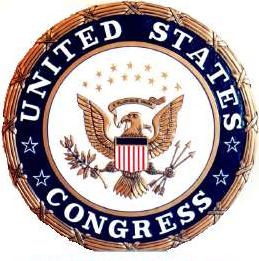ROUNDUP: Momentum grows in US Congress to lift Cuba travel ban
 Washington - The US Chamber of Commerce threw its weight behind a bill introduced Tuesday in the US Senate that would eliminate the ban on most US travel to the Caribbean island.
Washington - The US Chamber of Commerce threw its weight behind a bill introduced Tuesday in the US Senate that would eliminate the ban on most US travel to the Caribbean island.
The bill, which has strong support in both parties, would appear to open the flood gates for US travellers and tourists, and is seen as a first step towards reexamining the overall restrictions on US trade with the communist island.
Currently, most travel is limited to Cuban-Americans who have immediate family members on the island and a few other limited groups on a very restricted basis.
The bill is being sponsored by two Democratic senators, Christopher Dodd and Byron Dorgan, and two Republicans, Richard Lugar and Mike Enzi.
Farm-state Republicans in particular are keen on having new agricultural markets which Cuba offers, but Obama has not yet indicated that he backs a lifting of all the trade sanctions.
The US Chamber of Commerce, a major business group in the US, called the US embargo on Cuba "a 50-year failure" and said lifting the ban on travel would be a "good first step toward a more rational policy."
Myron Brilliant, a top official in the chamber, said the policies have made "a martyr out of a tyrant" and actually helped support Cuba's communist regime because it allowed its leaders to blame their economic misery on the US, and not on what he called "Marxist mismanagement."
Earlier this month, the US Congress eased travel restrictions for family members when it cut off funding to enforce already tight travel restrictions on families that were further narrowed under former president George W Bush. The cut-off was part of a 410- billion-dollar spending bill.
US President Barak Obama during his election campaign advocated a "new strategy" for Cuba, and could offer more changes at the April 17-19 summit of the Americas in Trinidad and Tobago, the Washington Post recently reported.
Cuba, emerging from nearly half a century of rule under Fidel Castro who stepped aside for his brother Raul a year ago, will attend the summit because it is excluded from the Organization of American States (OAS).
The 2004 Bush restrictions limited visits to once every three years, for no more than two weeks, and excluded extended family, such as aunts, uncles and cousins.
Congress also increased the money Cuban-Americans are allowed to spend on the island per day during their stay from 50 to 179 dollars.
A large number of US legislators have long advocated lifting the sanctions to some degree, but they lacked enough strength to override vetoes which Bush threatened.
Opposition to any change in travel or trade restrictions is being led by Republican Senator Robert Menendez, the son of Cuban immigrants. Earlier this month, he argued that the billions of dollars spent by "Europeans, Canadians, Mexicans, South and Central Americans" in Cuba over the years have failed to force the regime to open up.
US Vice President Joe Biden, who was in Chile over the weekend at a warm-up meeting for the G20 economic summit in London this week, said that the people of Cuba "have to live in freedom and economic prosperity."
"We expect a transition," he said. But he added that any changes ""should be determined by the Cuban people." (dpa)